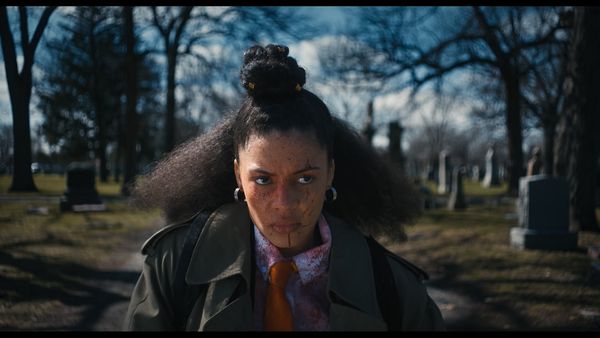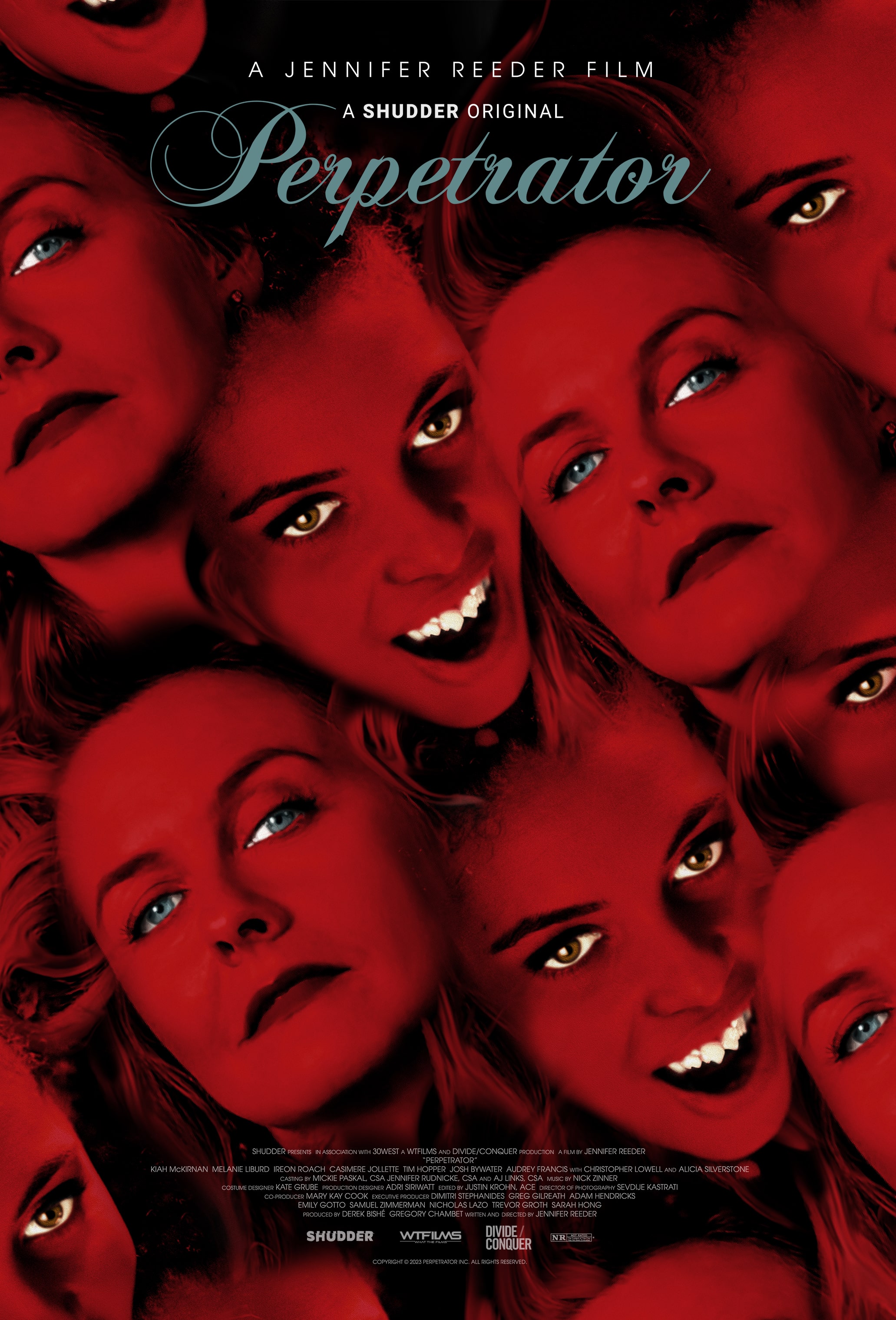Eye For Film >> Movies >> Perpetrator (2023) Film Review
Perpetrator
Reviewed by: Jennie Kermode

Coming of age isn’t always a delicate process involving sunshine and broken hearts and the gradual discovery of self confidence. It can be aggressive – to the point where parents or guardians feel they can’t cope – and, for girls, it can be bloody. Girls also have the experience of being conditioned, at that age, to perceive themselves as victims, destined to encounter men who want to dominate or outright harm them. Jennifer Reeder’s latest film may not be subtle about these things, but subtlety too often leads to silence, and to a dismissal of matters which ought to be treated as shocking and urgent.
When Jonquil (Kiah McKirnan) – known as Jonny – is sent to stay with her aunt (Alicia Silverstone) because her guardian feels unable to steer her through this pivotal stage in her life, she moves into an uncomfortable environment. At school, policy-compliant behaviour during active shooter drills is graded, whilst girls are taught not to fight back if assaulted by men because that could be provocative. By night, girls are going missing. Ornica Keller, Darby Grube, Evelyn Tufts and more. Posters alerting people to their absence are pasted everywhere. We see one of them, briefly, with her captor. He cautions her not to fight, saying "This is bad but it can always get worse."

Life is complicated and messy and does no follow straight lines. On her 18th birthday, Jonny undergoes a life-changing experience. Her aunt explains that it manifests differently for each of the women in the family, though it’s always connected with blood. “Is she a vampire? Is she a werewolf?” critics have asked, as if there could be only so many permissible categories – part of the problem which Reeder is addressing. Jonny is Jonny. She is also unusually able to connect with other people, to experience an intense form of empathy which is, at first, overwhelming, but which might be honed into a useful tool. What is often depicted – in cinema and elsewhere – as a weakness becomes a game-changing strength.
Drawing on this ability, Jonny decides to go looking for the missing girls, and here the film moves into more conventional territory. After all, despite all the dramatic things which adolescence forces people to deal with, they still have to move through the familiar world as well, and define their own moral paths. Though she is initially seen as the weird kid, an outsider who makes trouble and even breaks into houses, other girls at the school come to recognise that Jonny is someone who might be able to help – or even show them an alternative way of living. She experiences a tender romance with one of them. She also uncovers a connection between the missing ones, which she is determined to pursue no matter what – but what she doesn’t know is that the man she’s up against understands her better than most.
These narrative aspects of the film are interwoven with something more poetic or experiential, as we deep dive into Jonny’s new sensations by way of hallucinatory sequences, frequently involving large amounts of blood. Nick Zinner's fierce score enhances these and at times emphasises the disconnect between her emotions and her environment. A school counsellor who wants her to learn how to keep up appearances is preoccupied with her own, wearing bandages from recent plastic surgery. In Jonny’s family, there is a different relationship with appearance; one which touches on fundamental questions of identity, gender and movement through the world.
Reeder has always been interested in the power which resides in the feminine rather than simply in the female – in making room for girls and women (and potentially others) to be respected even when they express themselves in ways which have historically been trivialised or associated with weakness. In a year when the success of Barbie has seen this move into the mainstream, she takes it a step further with a scene in which a chorus of girls chant a phrase which is disruptive in its claim to ownership, in its redefinition of a concept associated with being owned or disempowered. Perpetrator heralds the joyous rising up of a regiment of monstrous women. Living in fear and dependency because it could always get worse is no longer enough. Through an embrace of the gory reality of bodily experiences and the emotional complexity of communal ones, Reeder asserts that it could get better.
Reviewed on: 30 Aug 2023
















